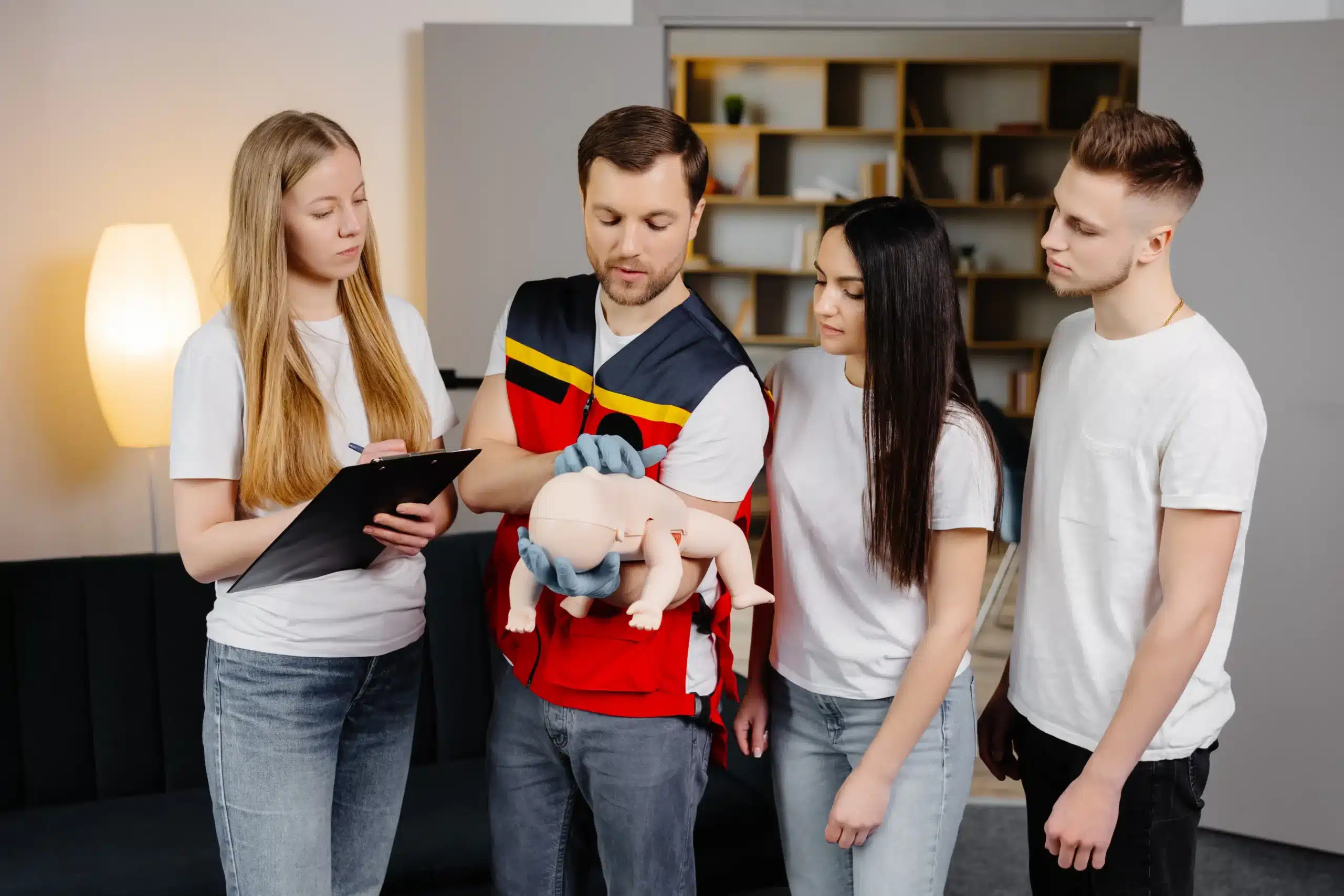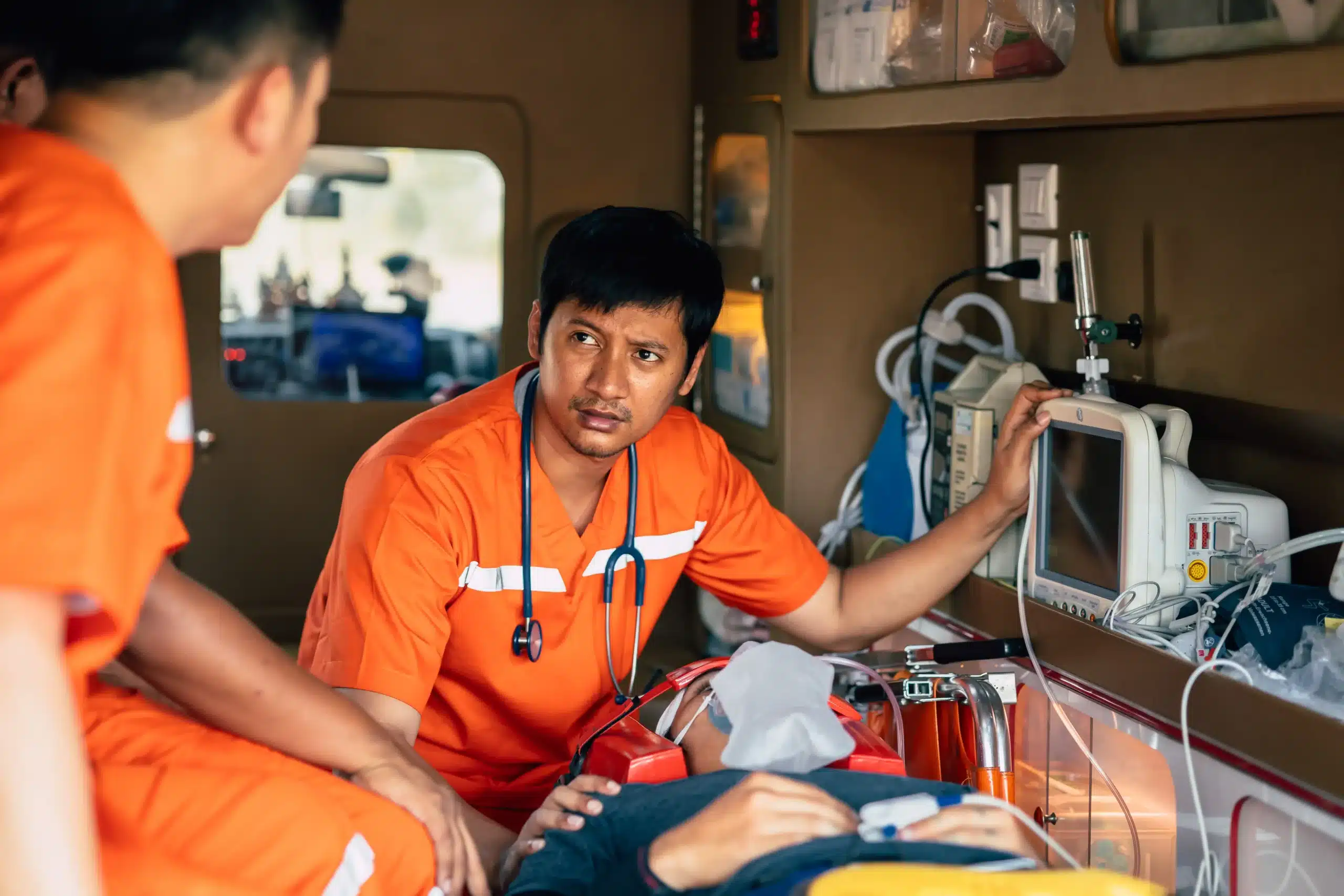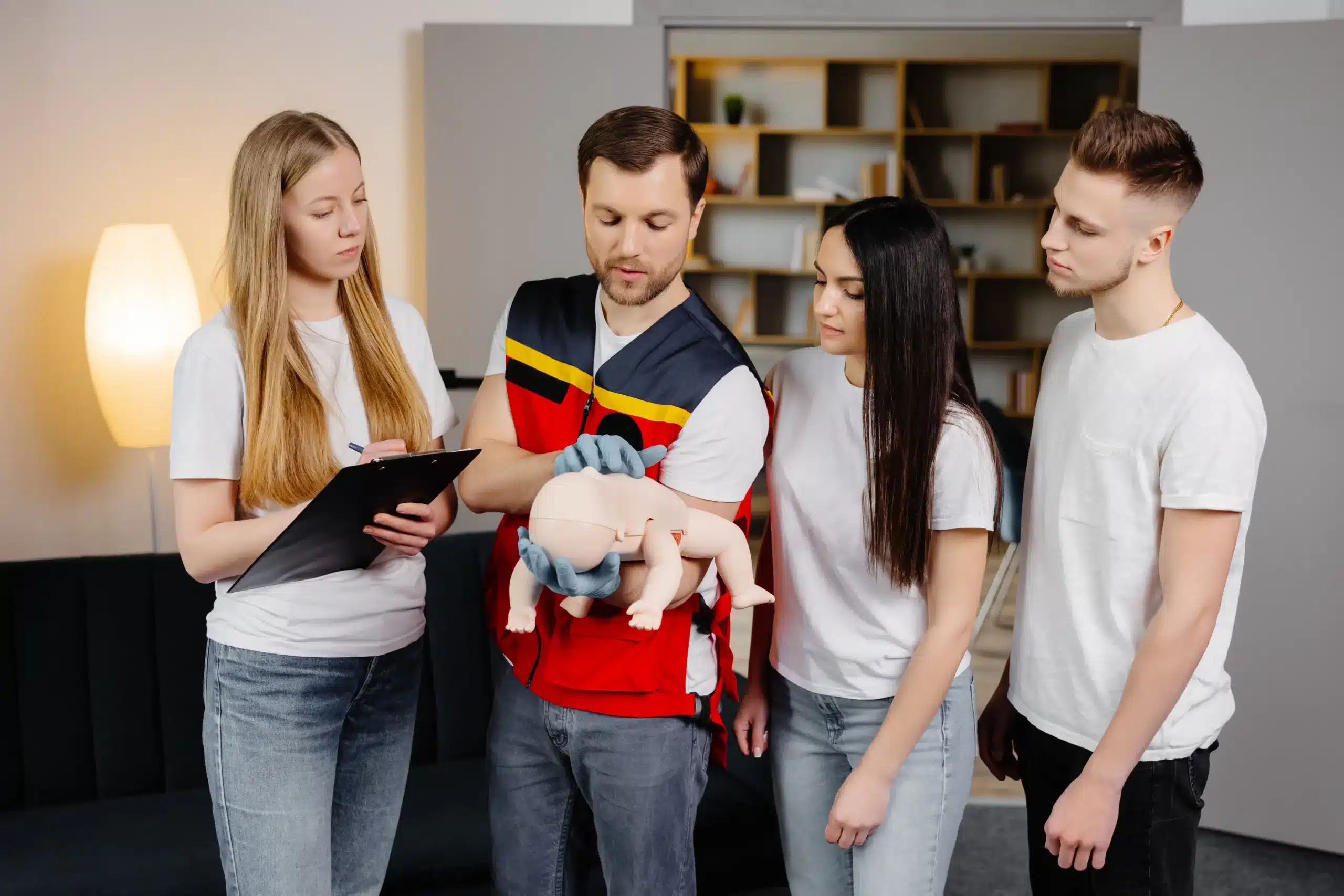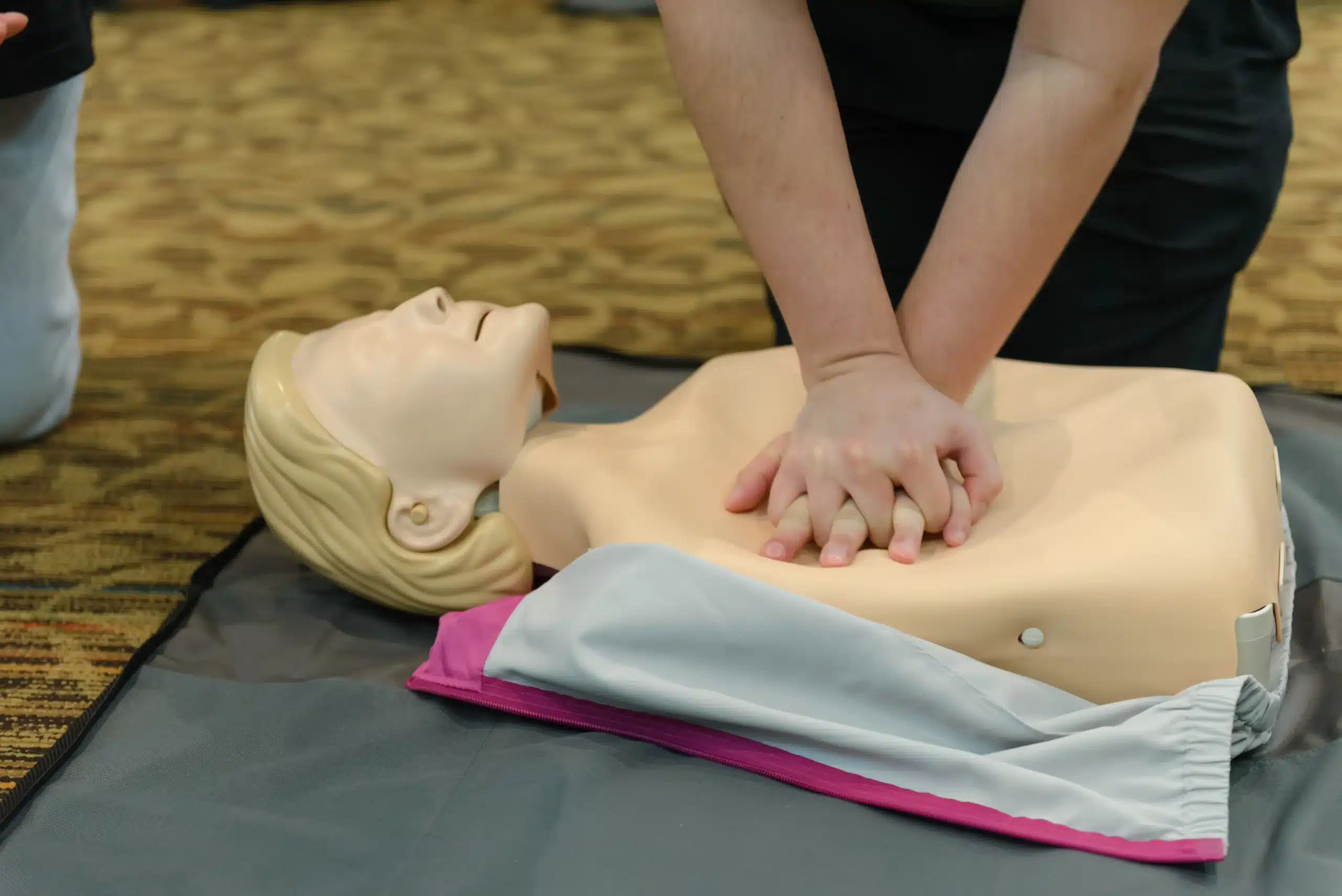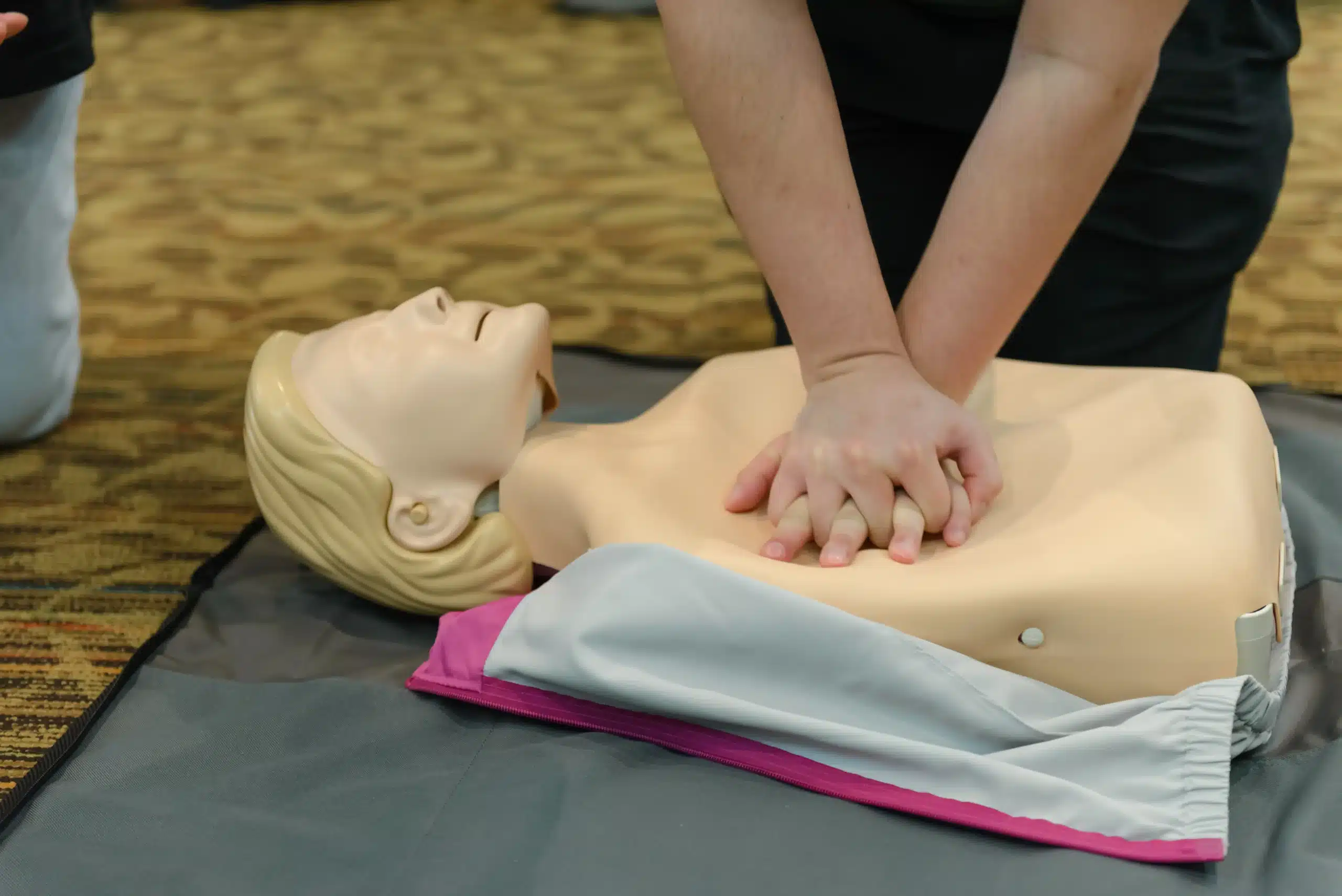Are you passionate about nurturing young minds and shaping the future generation? If so, a career in childcare could be the perfect fit. San Francisco offers a wealth of opportunities for aspiring childcare professionals, and this article serves as your guide to childcare courses in San Francisco. We’ll explore the various educational paths available, including certificate programs, associate degrees, and specialized training options. Whether you’re just starting out or looking to enhance your existing skills, understanding the available resources and requirements is crucial. Join us as we delve into the world of childcare education in San Francisco, uncovering the pathways to a fulfilling career.
Key Takeaways
- Diverse educational paths are available: Explore certificate programs for targeted skill development or pursue associate and bachelor’s degrees for a comprehensive understanding of child development and early childhood education.
- Financial assistance can make education accessible: Explore resources like Early Learning For All and the San Francisco Office of Early Care and Education for financial aid and tuition credits.
- Continuous learning is key for career growth: Stay current with licensing requirements, pursue certifications, and engage in continuing education to enhance your skills and advance your childcare career.
What are Childcare Courses in San Francisco?
Looking to start a career in childcare or level up your existing skills? San Francisco offers a variety of educational paths, from quick certificate programs to full-fledged degrees. Let’s break down the options:
Certificate Programs
Certificate programs are a great way to gain targeted skills quickly. City College of San Francisco (CCSF), for example, offers a Family Childcare Certificate designed for those wanting to start or enhance their licensed family childcare business. This program works well for both new entrants to the field and seasoned providers looking for a refresher. These certificates can cover various aspects of childcare, giving you the practical knowledge you need to succeed.
Associate and Bachelor’s Degrees
If you’re looking for a more in-depth understanding of child development and early childhood education, an associate or bachelor’s degree might be a better fit. CCSF offers both Associate of Arts (AA) and Associate of Science (AS) degrees in Child Development and Family Studies. These programs provide a solid foundation and can even pave the way for transferring to a four-year university. For those interested in a bachelor’s degree, San Francisco State University offers a Bachelor of Arts in Child & Adolescent Development with a concentration in Early Care & Education. This program dives deeper into working with young children and their families, exploring the theories and best practices in the field.
Specialized Training
Beyond general childcare coursework, you can also find specialized training programs in San Francisco. These certificates focus on specific areas like infant/toddler care, school-age care, administration, family childcare, youth work, and special education (early intervention and TK-12). The required units for these certificates typically range from 6 to 24, offering flexibility depending on your career aspirations. You can explore these options through the Child Development & Family Studies Department at CCSF, allowing you to tailor your education to your specific interests. This focused approach can help you stand out in the competitive childcare field.
Prerequisites and Enrollment
Getting started with a childcare career in San Francisco requires understanding the steps involved. This section covers the typical prerequisites, from educational background to health and safety requirements.
Educational Background
Many aspiring childcare professionals begin with a certificate program. City College of San Francisco (CCSF), for example, offers a Family Childcare Certificate designed for those interested in starting or growing a licensed family childcare business. This program provides foundational knowledge and skills for working with children. Beyond certificates, you can pursue associate or bachelor’s degrees in child development or early childhood education for more in-depth study.
Age and Residency
While specific age requirements vary depending on the program, you’ll generally need to be at least 18 years old. Residency requirements may also apply for certain programs or financial aid opportunities. For San Francisco families earning between 111% and 150% of the Area Median Income, tuition credits are available through programs like Early Learning For All. This initiative helps make childcare education accessible to more families.
Health and Background Checks
Health and safety are paramount in childcare. Expect to undergo background checks and provide immunization records. Licensing regulations for family childcare providers in California are also important. For instance, providers licensed for 12 children must have an additional caregiver present and can care for no more than four children under two. Specific regulations regarding the number and ages of children in care ensure a safe and nurturing environment. Research these requirements thoroughly as you plan your childcare career.
Program Structure and Duration
Understanding the structure and time commitment of childcare courses will help you find the right fit for your lifestyle and career goals. Let’s explore some common program formats:
Full-Time vs. Part-Time
Childcare certificate programs, like the one at City College of San Francisco, cater to both full-time and part-time students. Full-time programs offer a more immersive experience, allowing you to complete your training more quickly. If you’re juggling work or family responsibilities, a part-time schedule offers flexibility. Consider your current commitments and how much time you can realistically dedicate to your studies.
Online vs. In-Person
Many programs now offer online or hybrid learning options. CCSF’s Family Childcare Certificate program allows students to choose between partially or fully online courses. Online learning provides flexibility, while in-person classes offer more hands-on experience and networking opportunities. Think about your learning style and which environment best suits you. Do you thrive in a structured classroom, or do you prefer the independence of online learning?
Practical Experience
Practical experience is essential for any aspiring childcare professional. Look for programs that incorporate hands-on training, such as internships or practicums. San Francisco State University’s Early Care & Education program emphasizes practical application, equipping students with knowledge about child development theories and professional responsibilities. This hands-on experience allows you to apply classroom knowledge, develop your skills, and build confidence working with children. It also provides valuable networking opportunities.
Childcare Career Opportunities
San Francisco offers diverse career paths for those passionate about early childhood education. Whether you’re just starting out or looking to advance your career, understanding the options available can help you make informed decisions. This section explores some exciting possibilities.
Family Childcare Provider
If you enjoy creating a nurturing environment in your own home, becoming a family childcare provider might be a good fit. This involves caring for a small group of children of varying ages, offering a home-like setting. For those in San Francisco, City College of San Francisco (CCSF) offers a Family Childcare Certificate program designed for starting a licensed family childcare business or enhancing existing skills. This program benefits both newcomers and experienced providers seeking professional development. As a family childcare provider, you’ll play a crucial role in the early development of young children.
Preschool and Infant-Toddler Teacher
Working as a preschool or infant-toddler teacher allows you to specialize in a specific age group. These roles involve creating and implementing lesson plans, fostering social-emotional development, and ensuring a safe and stimulating classroom environment. Graduates of early childhood education programs are well-prepared for these positions. San Francisco State University’s Department of Child & Adolescent Development offers relevant programs equipping graduates with the knowledge and skills to work with infants, toddlers, and preschoolers. These programs also open doors to leadership roles like center director or curriculum specialist.
Childcare Center Director
For those with leadership aspirations, becoming a childcare center director can be a rewarding path. This role involves overseeing the daily operations of a childcare center, managing staff, and ensuring compliance with licensing regulations. Strong organizational and communication skills are essential. CCSF’s certificate and degree programs often include coursework relevant to childcare administration, preparing graduates for leadership roles. As a center director, you’ll significantly impact the quality of care and education provided.
Curriculum Specialist
If you’re passionate about designing engaging learning experiences, consider becoming a curriculum specialist. This role focuses on developing and implementing educational programs for young children, often incorporating principles of social justice and cultural awareness. A strong understanding of child development theories and research methods is crucial. SFSU’s early care and education programs delve into these topics, preparing graduates to design effective educational programs. As a curriculum specialist, you’ll shape the learning journey of young children, fostering their growth.
Course Costs and Financial Aid
Childcare courses in San Francisco vary in cost depending on the program, institution, and length. Understanding the expenses and available financial aid options will help you plan your education.
Tuition and Expenses
Tuition can range from a few hundred dollars for short certificate programs to several thousand for associate or bachelor’s degrees. Factor in additional expenses like textbooks, materials, transportation, and background checks. Families looking for early childhood education programs can find support through initiatives like Early Learning For All, which offers tuition credits covering 50% of the Department of Early Childhood’s published tuition rates at participating locations. This program makes quality early care and education more accessible.
Financial Assistance
The San Francisco Office of Early Care and Education provides financial assistance to eligible families, helping them access quality programs. They manage federal and state funding to support families who need it. The Overview of Child Care and Preschool Programs report offers a helpful overview of childcare programs and funding options.
Scholarships and Grants
Several scholarships and grants are available for students pursuing early childhood education careers. Explore options through your chosen institution and connect with community organizations for additional support. The Early Learning For All program funds community-based organizations that can help families check eligibility, enroll in programs, and find suitable early care and education options. These resources are invaluable for navigating the financial aid process and securing funding for your childcare education.
Key Skills You’ll Develop
Childcare courses equip you with a diverse skill set applicable to various professional settings. These skills go beyond the basics, preparing you for a rewarding career working with children.
Child Development
Understanding the different stages of child development is fundamental to providing effective care. You’ll learn about the physical, cognitive, social, and emotional changes children go through, from infancy through adolescence. This knowledge helps you create age-appropriate activities and support each child’s individual needs. This understanding is crucial for creating a nurturing and stimulating environment where children can thrive. San Francisco State University’s Child and Adolescent Development Department offers further insights into these theories.
Safety and First Aid
Safety is paramount in childcare. You’ll gain practical skills in first aid, CPR, and emergency response, ensuring you’re prepared to handle any situation. This not only protects the children in your care but also provides peace of mind for parents. Knowing you can respond effectively in an emergency is a valuable asset. Childcare Aware offers resources on best practices for safety training.
Curriculum Planning
Developing engaging and educational activities is a core component of childcare. You’ll learn how to create lesson plans that promote learning through play, exploration, and social interaction. This allows you to tailor your approach and create a dynamic learning environment for every child. City College of San Francisco’s Child Development and Family Studies Department offers more information on curriculum planning.
Communicating with Children and Parents
Effective communication is essential for building strong relationships with both children and their parents. You’ll learn how to communicate clearly and empathetically with children, fostering a sense of trust and security. Regular communication with parents keeps them informed about their child’s progress and builds a collaborative partnership. For more on communicating with families, check out San Francisco State University’s Early Care & Education program.
Choosing the Right Course
Finding the perfect childcare course takes careful consideration of your goals, the programs available, and practical factors like scheduling. Let’s break down how to approach this important decision.
Assess Your Goals
First, consider what you want to achieve. Are you hoping to open your own licensed family childcare business? The Family Childcare Certificate program at City College of San Francisco (CCSF) might be a good fit. This program supports both newcomers and seasoned providers looking to refresh their skills. Consider which age group you’re most drawn to—infants, toddlers, preschoolers, or older children. Knowing this will help you narrow down your options.
Compare Programs
Once you have a sense of your goals, start comparing programs. CCSF’s Child Development and Family Studies Department offers several programs focused on working with children and youth. Their focus on social justice and responsive relationships might be a good match if those values are important to your childcare philosophy. If a four-year degree is on your radar, San Francisco State University’s Bachelor of Arts in Child & Adolescent Development, with a concentration in Early Care & Education, is worth checking out. This program creates pathways to a variety of careers working with young children and families. Request program brochures and visit program websites to get a better understanding of the curriculum and teaching approach.
Consider Schedule and Location
Practicalities like scheduling and location are also essential. Look at the course schedule for the Family Childcare Certificate program at CCSF to see if it works with your life. The program usually involves coursework spread across semesters, with a typical first-semester course load of six units. The college catalog has a complete course list. CCSF also provides valuable support services, including career assessments, counseling, and tutoring, to help you throughout your studies. Consider whether online or in-person classes are best for you, and factor in the commute if you’ll be attending classes on campus.
Licensing and Certification
Once you’ve completed your childcare training, make sure you have the right licenses and certifications. These credentials demonstrate your professionalism and are often required for employment. Here’s a closer look at licensing and certification in California:
State Regulations
California has specific licensing requirements for childcare providers to ensure they meet quality standards. These regulations protect children and maintain safe environments. Anyone working with young children should familiarize themselves with the Child Development Permit Matrix issued by the California Commission on Teacher Credentialing. This resource outlines the different permit types and requirements, which are essential for anyone working in early childhood education.
Continuing Education
The field of childcare is constantly evolving, so ongoing learning is essential. Continuing education courses can help you expand your skillset and advance your career. City College of San Francisco’s Child Development and Family Studies Department offers various courses designed to meet the evolving needs of childcare professionals. They provide a pathway for ongoing professional development.
Professional Organizations
Professional organizations offer valuable resources, networking opportunities, and support for childcare providers. They often contribute to setting industry standards and advocating for quality early childhood education. In San Francisco, organizations like the Office of Early Care and Education (SF OECE) and First 5 San Francisco play a significant role in supporting families and childcare providers. They’ve established quality standards for early childhood programs to help parents make informed choices about childcare. These standards offer a framework for quality care and education.
The Future of Childcare Education
Emerging Trends
The childcare field is constantly evolving to meet the needs of children and families. In San Francisco, we see exciting trends shaping the future of childcare education. For example, City College of San Francisco (CCSF) offers a Family Childcare Certificate program designed for those starting a licensed family childcare business or wanting to enhance their existing skills. This focus on professional development reflects a growing emphasis on high-quality care. CCSF’s Child Development & Family Studies Department highlights social justice and responsive relationships, indicating a shift towards more inclusive practices. Beyond certificates, San Francisco State University offers a B.A. in Child & Adolescent Development with an Early Care & Education concentration. This program prepares students for diverse careers working with young children and their families, demonstrating the increasing professionalization of the field.
Meeting the Demand for Professionals
These educational pathways are crucial for meeting the growing demand for qualified childcare professionals. Graduates of the CCSF program can pursue roles as family childcare providers, assistants, or in-home caregivers. The alignment of the SFSU program with California’s Child Development Permit requirements ensures graduates are prepared to meet state standards. This focus on quality is essential. The San Francisco Department of Early Childhood emphasizes that quality early care and education are crucial for children’s cognitive, physical, and emotional development, preparing them for kindergarten and beyond. As the need for qualified professionals continues to grow, these programs play a vital role in shaping the future of childcare in San Francisco.
Related Articles
- Best Infant CPR Training in San Francisco (Find a Class) – San Francisco CPR Classes
- EMSA Child Care Health & Safety – San Francisco CPR Classes
- Pediatric CPR & First-Aid Courses Near Me: A Practical Guide – San Francisco CPR Classes
- NRP Classes in San Francisco (Bayshore) – San Francisco CPR Classes
- Your Guide to CPR Courses in San Francisco – Bayshore – San Francisco CPR Classes
Frequently Asked Questions
What’s the quickest way to start a career in childcare in San Francisco? Certificate programs offer a fast track for gaining essential childcare skills. They provide targeted training, allowing you to begin working relatively quickly. While an associate or bachelor’s degree offers a more comprehensive education, certificate programs are a great starting point, especially if you’re eager to enter the field sooner. You can then continue your education while gaining practical experience.
How do I know if a childcare career is right for me? Working with children requires patience, empathy, and a genuine passion for nurturing their development. If you enjoy creating a positive and stimulating environment for children, a childcare career could be a fulfilling choice. Consider volunteering or shadowing a childcare professional to gain firsthand experience and see if it aligns with your interests and personality.
What are the typical work environments for childcare professionals in San Francisco? Childcare professionals work in various settings, including family childcare homes, preschools, childcare centers, after-school programs, and even private homes as nannies or au pairs. The best fit depends on your preferences and career goals. Do you prefer a smaller, more intimate setting like a family childcare home, or do you thrive in the bustling environment of a larger childcare center? Consider what kind of environment best suits your personality and work style.
What’s the difference between a Child Development Permit and a teaching credential? In California, a Child Development Permit authorizes individuals to work in various childcare settings, while a teaching credential is specifically for classroom teaching in public or private schools. The permit focuses on early childhood education, while a credential typically covers a broader age range. If your goal is to work specifically with young children outside of a traditional school setting, a Child Development Permit is likely the more relevant qualification.
How can I find financial assistance for childcare courses in San Francisco? Several resources are available to help you fund your childcare education. Start by checking with the financial aid office of the institution offering the program. They can provide information on scholarships, grants, and loans. Additionally, explore resources like the San Francisco Office of Early Care and Education, which offers financial assistance to eligible families. Don’t hesitate to reach out to community organizations and professional associations for additional funding opportunities.


